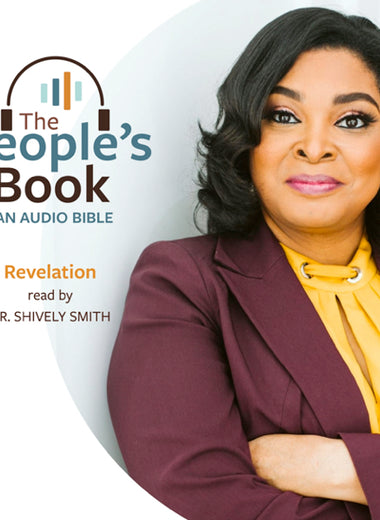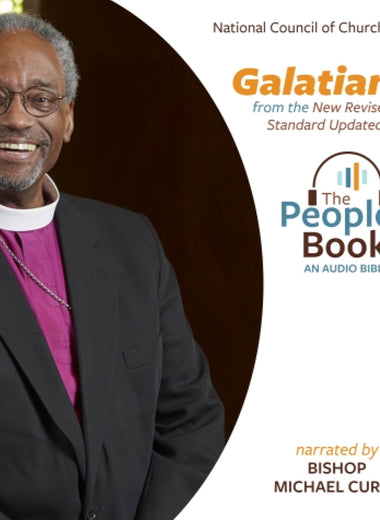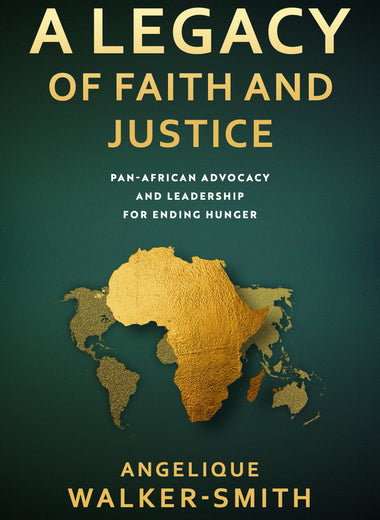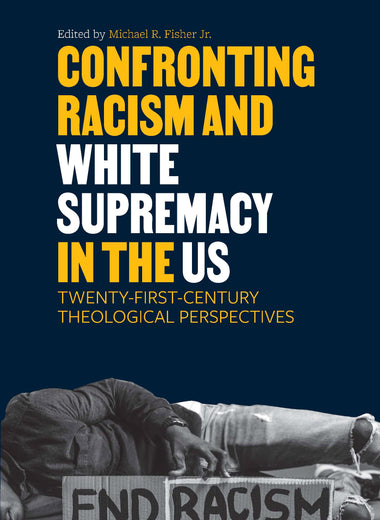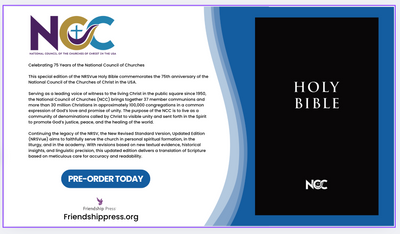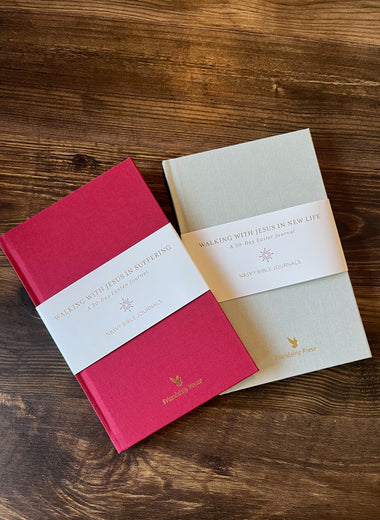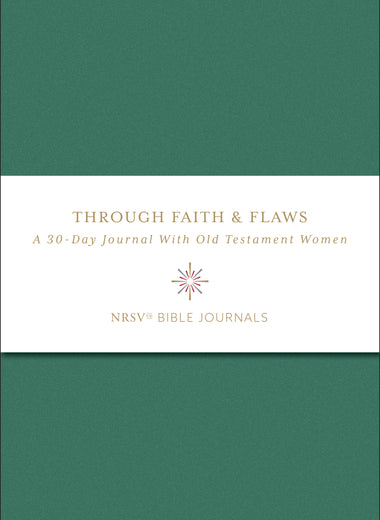Licensing and Permission guidelines
The following usage guidelines apply to all versions of the RSV, NRSV, and NRSVue bible translations. (Note: Except for the NRSV-CE, the NRSV is no longer available for new licenses or permission agreements.)
I. FAIR USE (GRATIS) PERMISSION POLICY
Up to 500 verses may be quoted in any form (written, visual, or audio) without charge and without obtaining written permission provided all of the following conditions are met:
The total number of verses quoted is:
- less than an entire book of the Bible, and
- less than 500 verses (total), and
- less than 25% percent of the total number of words in the work in which they are quoted
- No changes are made to the text. All quotations must be accurate to the text, including all appropriate punctuation, capitalization, etc. unless specifically approved to the contrary prior to publication.
The applicable notice of copyright must appear in an appropriate location in the publication in which they are quoted. See “Copyright Notice and Acknowledgement”, section V, for the appropriate copyright notice for each version of the translation.
Special permission is not required for quotations meeting the above criteria that are utilized in non-salable media, such as such as church bulletins, orders of service, newsletters, class handouts, transparencies or other presentation media, whether electronic or mechanical.
Works not covered by gratis use:
- Use of the text where the text stands alone, such as: artwork, jewelry, gift product, etc. is not permitted without requesting formal permission (fees may apply).
- The Fair Use Guidelines do not apply to Phone Applications, or other New Media Platforms (web sites, apps, etc.).
- Text that does not include the appropriate copyright notice (see “Copyright Notice and Acknowledgement,” Section V).
We are unable to grant permissions and licenses for the RSV-2CE. For permissions, contact Ignatius Press.
II. DIGITAL AND WEB USE POLICY
.
Generally, gratis permission will not be granted to post or podcast:
- The complete text
- An entire testament
- A complete book of the Bible
Although posting the lectionary readings for a single week is within the Gratis Use Policy, most other online uses of the lectionary texts exceed the policy and will require a license.
Mobile apps, downloadable book or Bible, and software are examples of digital usages that will require a special permission or license.
III. ALL OTHER USES
If a proposed use of the text is outside the Gratis Use Policy, then please submit a request for permission. Submit requests to:
Riggins Rights
2500 East Beltline Ave SE
Suite G, Box 352
Grand Rapids, MI 49546
Email: NCCcopyright@rigginsrights.com
Requests should include the information below. Generally, we need to know:
1. What you would like to use—
- which translation
- The specific verses (including the total number of verses) or books, or New Testament Only, Old Testament Only, Apocrypha/Deuterocanonical Writings, or entire Bible, etc.
2. How you would like to use the text. Please provide the following information in your request:
- Working title or name of product
- Description of the proposed use, to include:
- Indicate if your usage will be salable, whether your organization is a non-profit or “for profit” organization. If you plan to distribute your work free of charge, please explain in detail.
- Publication medium in which your work will be utilized (i.e., audio, artwork, print book or Bible, digital, periodical, etc.).
- All the formats and bindings you plan (i.e., cassette, digital-app, hardcover, genuine leather, paperback, etc.)
- Target markets where your product will be distributed (Anglican, Catholic, ecumenical, Evangelical, Jewish, Orthodox, Protestant, Non-Religious, etc.)
- Target age group (i.e., toddler, young adult) and audience of your product (i.e., congregation, pastors, women etc.)
- Geographical territory in which your product will be distributed (U.S., North America, UK, etc.)
- Anticipated date of publication or first use
- Anticipated first print run quantity for each binding/format
- Anticipated lifetime sales for all bindings/formats
- Estimated retail and net/wholesale sales prices. If you are distributing at no charge, please provide an explanation.
- Any other background information that would assist in describing your proposed use.
3. Information on You and Your Organization —
- Organization’s legal name, mailing address, email address, phone number, and website address.
- Organization’s tax filing status: non-profit under IRS 501c, corporation, etc.
- Contact person’s name, mailing address, email address, and phone number
Providing complete, detailed information will facilitate a timely response.
IV. FEES
A permission, license or royalty fee may be charged for uses that exceed the Gratis Use Policy.
License fees are assessed based on many factors, including but not limited to:
- The amount of material used.
- The ratio of material to the total content of the new work in which they appear.
- Whether the use will be distributed free of charge or sold. Salable items include products sold at cost, no-profit cost, or sold for profit. This includes items for which the proceeds are used to benefit a charitable purpose. Some local ministry and educational uses fall within the commercial category. Some other uses are considered non-commercial uses.
Upon completion of the grant of rights, you will be provided the procedure and fee structure to facilitate production from the scripture database files.
V. COPYRIGHT NOTICE AND ACKNOWLEDGMENT
1. All quotations from the text must include the proper designation of the translation after the biblical citation.
For example:
- "When God began to create the heavens and the earth," Genesis 1:1 (NRSVue) or (Genesis 1:1, NRSVue)
- “For God so loved the world that he gave his only Son, that whoever believes in him should not perish but have eternal life.” John 3:16 (RSV) or (John 3:16, RSV)
When quotations from the text are used in non-salable media (such as church bulletins, orders of service, newsletters, class handouts, transparencies or other presentation media, whether electronic or mechanical), a complete copyright notice is not required but the initials (RSV, NRSV, NRSVue, or a variant) must appear at the end of each quotation.
2. Excerpt Usage – A complete copyright notice should be included with all uses. The location of the copyright notice will depend, in part, upon the medium in which the quotation is used.
For example:
- Books—On the copyright page and any other acknowledgments section
- Audio uses, including cassettes and CDs—On the jewel box liner and any booklet inserted into the case
- Electronic uses, including software—On the packaging, “About This Product” screens, and product web site(s)
- Visual uses, including videos, films, slides, class handouts, transparencies or other presentation media—On the packaging, the copyright screen, and any other acknowledgments section
- Greeting cards—On the backside of the card
When it is not feasible to use the complete copyright notice on the item, the full credit line may appear in ancillary materials that accompany the item.
The following copyright notices are authorized for use with the various editions of the RSV, NRSV, and NRSVue (note: except for the NRSV-CE, the NRSV is no longer available for new licenses or permission agreements.):
* [Scripture quotations are from] Revised Standard Version of the Bible, copyright © 1946, 1952, and 1971 National Council of the Churches of Christ in the United States of America. Used by permission. All rights reserved worldwide.
* [Scripture quotations are from] The Catholic Edition of the Revised Standard Version of the Bible, copyright © 1965, 1966 National Council of the Churches of Christ in the United States of America. Used by permission. All rights reserved worldwide.
* [Scripture quotations are from] Common Bible: Revised Standard Version of the Bible, copyright © 1973 National Council of the Churches of Christ in the United States of America. Used by permission. All rights reserved worldwide.
* [Scripture quotations are from] Revised Standard Version of the Bible, Apocrypha, copyright © 1957; The Third and Fourth Books of the Maccabees and Psalm 151, copyright © 1977 National Council of the Churches of Christ in the United States of America. Used by permission. All rights reserved worldwide.
* [Scripture quotations are from] Revised Standard Version of the Bible—Second Catholic Edition (Ignatius Edition) Copyright © 2006 National Council of the Churches of Christ in the United States of America. Used by permission. All rights reserved worldwide.
* [Scripture quotations are from] New Revised Standard Version Bible, copyright © 1989 National Council of the Churches of Christ in the United States of America. Used by permission. All rights reserved worldwide.
* [Scripture quotations are from] New Revised Standard Version Bible: Catholic Edition, copyright © 1989, 1993 National Council of the Churches of Christ in the United States of America. Used by permission. All rights reserved worldwide.
* [Scripture quotations are from] Common Bible: New Revised Standard Version Bible, copyright © 1989 National Council of the Churches of Christ in the United States of America. Used by permission. All rights reserved worldwide.
* [Scripture quotations are from] New Revised Standard Version Bible: Anglicized Edition, copyright © 1989, 1995 National Council of the Churches of Christ in the United States of America. Used by permission. All rights reserved worldwide.
* [Scripture quotations are taken from] the New Revised Standard Version Updated Edition. Copyright © 2021 National Council of Churches of Christ in the United States of America. Used by permission. All rights reserved worldwide.
* [Scripture quotations are taken from] the New Revised Standard Version Updated Edition, Deuterocanonical/Apocryphal Books of the Old Testament. Copyright © 2021 National Council of Churches of Christ in the United States of America. Used by permission. All rights reserved worldwide.
* [Scripture quotations are from] the NRSVue British Text, derived from the New Revised Standard Version Updated Edition, Copyright © 2021 National Council of Churches of Christ in the United States of America. Used by permission. All rights reserved worldwide.
In the future, the website address for RSV, NRSV, and NRSVue should be placed within the copyright notice line.
